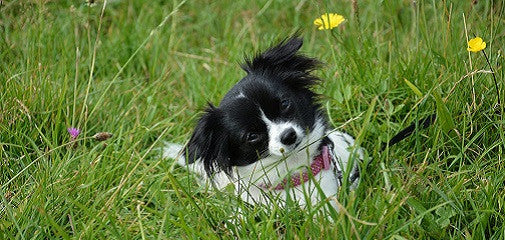
If you’re planning on planting some flowers or bringing some into your home this spring, keep your pets in mind when choosing which ones to get. While many spring flowers are beautiful, some can be dangerous to pets. Avoid getting the following flowers for your home or garden this spring.
Daffodils
Daffodils brighten up homes and gardens in spring. However, these flowers contain lycorine and other toxins that are harmful to dogs and cats. Signs of poisoning from eating daffodil bulbs include vomiting, excessive salivating and diarrhea. Pets that eat large amounts of daffodils might have low blood pressure, cardiac arrhythmia and convulsions.
Hyacinths
Hyacinths and their vivid purple and pink tones are a common spring flower. These flowers belong to the same family as lilies, but they are toxic to both dogs and cats. Hyacinths contain alkaloids that can cause vomiting, tremors, diarrhea and depression.
Lilies
Lilies are one of the most popular types of springtime flowers. Lilies are not considered harmful to dogs, but they are harmful to cats. If you have cats, stay away from different types of lilies, including tiger lilies and Easter lilies. When cats eat toxic lilies, they can end up having kidney failure.
Sago Palms
Sago palms can add a touch of tropical flair to homes in spring, but they’re not safe for households with pets. These plants have toxins in all of their parts, including their seeds. Ingesting any part of a Sago palm can lead to liver failure in dogs and cats. Signs that pets might have ingested this plant include vomiting, depression and seizures.
Tulips
Tulips are another common springtime flower, but they are considered toxic to dogs and cats. In particular, the bulbs of tulips have the largest amounts of toxins. Signs that pets might have ingested these flowers include vomiting, diarrhea, excess saliva production and depression.
Fertilizers and Mulch
If you’re planting spring flowers outdoors, you also need to watch the types of fertilizers or mulches you use. Don’t use fertilizers that are filled with toxic ingredients, and stay away from bone meal or blood meal if you have a dog who likes to dig. Bone meal and blood meal can encourage digging behavior due to their scent, which appeals to dogs. You should also avoid using cocoa chips as mulch, since some of these products contain the same ingredient that makes chocolate toxic to dogs.
Pet-Safe Plants
There are many flowers and plants that are not considered harmful to dogs or cats. Some ideas for pet-friendly flowers and plant options for your home or garden include African daisies, marigolds, orchids, roses, snapdragons and African violets.

Comments (0)
Back to Blog